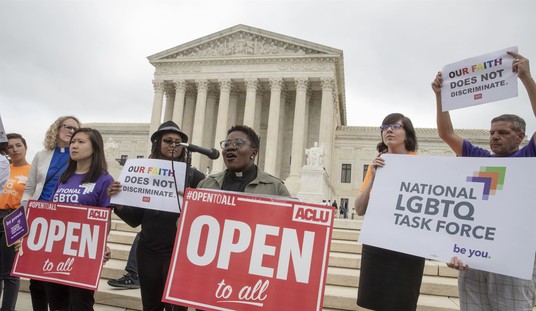
One more example of government authorities not implementing the demanded check process.
In the debate that instantly rises up in the wake of a tragic shooting sides are taken up in the form of solutions. The gun-control lobby leaps to the fore, as we know, and with the help of a very compliant media their message is readily broadcast. What is rarely vetted appropriately is that many demands for specific action by the pistol-nabbers are already in effect, but poorly executed.
Look at the pleas towards the authorities to do something. We have since learned just how widespread the Broward Sheriff’s Office inaction was, both with deputies failing to act at the scene of the Marjory Stoneman Douglas HS shooting, to the dozens of calls to the home of the shooter not leading to further action. Under Florida statutes the shooter threatening to gun down students (as he reportedly had done numerous times) could have led to an arrest and felony conviction. That could have led to a loss of gun rights.
Had it been reported.
Far too often the very authorities turned to for solutions have a severe challenge in reporting necessary data to the gun databases that would be triggered in background checks. Look at the case of the Sutherland Springs church shooting, where an Air Force airman with a history of domestic abuse did not have his crimes properly reported, and as a result he was able to purchase firearms. Now we learn that there is a similar widespread issue in Florida in regard to proper reporting of mental health issues.
Another common refrain in the gun debate is stricter reporting of those with mental health issues, and seeing to it they are not given wide access to guns. One other commonality in this climate: many of those proposals are already on the books. Case in point, five years ago the state of Florida toughened the standard to have people with recorded mental/emotional health issues accurately reported to the gun background check databases. As we are becoming too adjusted to hearing, the authorities are failing in the task of this reportage.
Years back it was learned that most people who had some form of a disqualifying mental illness would not be registered in the databases, because they were “self-admitted” cases. According to Federal mandates only those who were committed to a mental health facility would appear as a denial in the background checks. In 2013 the law was changed in the state of Florida, to include the self-admitted as well.
People who have been involuntarily committed for treatment for mental health, substance abuse or deemed incapacitated by a court are supposed to get reported to Florida law enforcement officials to be flagged during checks. But in 2013, after recognizing the law failed to catch about 99 percent of those in crisis because they opted for voluntary committal, the law was strengthened significantly.
Despite this broadened definition, which seems to apply directly to the loud call for tighter monitoring, there has not been a broadening of cases where a submission was denied. According to the Miami Herald last year close to one million background checks were conducted, leading to less than nine hundred of those denied due to a mental health issue. There is reason for this diminished figure.
Despite the tightening of the reporting, of the state’s sixty seven counties it is learned that five years later the total stands at one that have applied the new standard.
ONE.
So as calls go up for more strident mental health standards to be applied to gun sales we see that existing passage has gone largely ignored by those local governments. It adds to the list of ways our authorities have failed the community in execution of existing standards. I often ask the question of gun law proposals following the shooting — how does it apply to this case? Could the Parkland shooter have been prevented from purchase had the mental health checks been implemented?
While the shooter had not been formally admitted he was frequently evaluated for emotional issues. Local authorities visited the home of the shooter dozens of times. The school district had moved the shooter to various schools based on his behavior — six times in the span of three years. One of those schools was an alternative institution for students with emotional and behavioral problems. More than that, he was frequently visited, and evaluated, by the Department of Children and Families Adult Protective Service Program.
One of those visits is of particular note. According to the documents on September 29, 2016 during a counseling session the depression of the shooter was noted, with evidential details. In addition, at the same time, he gave voice to his desire for a gun.
“PI [Protective Investigator] spoke with Counselor (name redacted). She stated that she spoke with the Specialist (name redacted) who advised her that during the session V [Vulnerable Adult, Nikolas Cruz] revealed that he was depressed and started cutting himself. She stated that the Specialist (redacted) also informed her that V had gotten into a fight with another student because of a girl. She stated that is all the information the Specialist had.
Counselor (redacted) sated (sic) that the V admitted to her that he was feeling depressed. She stated that she was concerned about the V talk about wanting to purchase a gun and feeling depressed.
(emphasis added)


In another document from DCF the mother made a statement about the shooter having autism. NONE of this led to direct action taken, and thus none of the information made its way into the background check database — but the likelihood is it would not have been reported anyway. So now there is ample evidence that not only was the shooter on the radar of numerous agencies — school officials, Sheriff’s Office, FBI, and DCF — no intervention had been made, and also no entering into the record of his conditions was made.
So the list of ways authorities and officials have been derelict in this one particular case continues to grow. It is amazing to consider these are the same people who plead for the public that “If you see something, say something.” What has become the rather blatant problem is that our authorities have failed consistently when it comes to doing something.














Join the conversation as a VIP Member